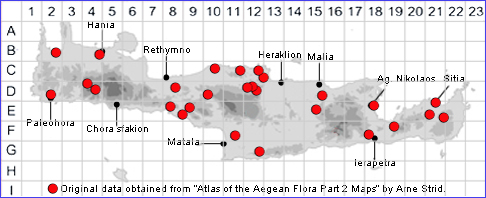SPECIES DESCRIPTION
SERAPIAS CORDIGERA
Family and Genus:- See- ORCHIDACEAE
Common Names:- Heart-flowered orchid
Homotypic Synonyms:- Helleborine cordigera, Lonchitis cordigera,
Serapias lingua var. cordigera, Serapiastrum cordigerum.
Meaning:- Serapias (Gr) After Serapis an Egyptian deity, a name used by the
Greek physician and botanist Dioscorides for an orchid.
Cordigera (L) Heart-shaped.
General description:- Short rather robust perennial.
Stem:-
1) Generally 15-40 cm tall, often with purple dots and streaks at the base of the
stem and lower leaves.
Leaves:-
1) Narrow, linear to lanceolate, channelled and often curving upwards.
2) Basal sheaths, green, usually speckled with red or purple.
Flowers:-
1) Spike, short, dense, ovoid, with 2-7(-10) rather large flowers.
2) Bracts, erect, equalling or somewhat shorter than the flowers, lanceolate,
cymbiform, silvery-grey with thin purple veins.
3) Sepals and petals, ovate-lanceolate, resembling bracts, connivent and forward-
directed.
4) Labellum, usually dark reddish-purple, distinctly constricted between the
hypochile and epichile.
a) lateral lobes, of the hypochile large, erect, rounded;
b) epichile, 20-28 mm, pendent or slightly reflexed, ovate, acuminate, bearded in
the middle.
Key features:-
1) Labellum, dark reddish-purple, with 2 divergent ridges at the base. distinctly
constricted between the hypochile and epichile.
2) Lateral lobes of the hypochile c. 1/3 as wide as the epichile,
3) Bracts, shorter than the flowers.
Cretan plants tend to be rather slender and have been called subsp cretica.
Habitat:- Seasonally damp places in dry open shrubby vegetation, grassland, open
coniferous woodland and olive groves on non-cacareous substrates. 0-700 m.
Distribution:- Scattered in W Greece. - S & W Europe, northwards to NW France
eastwards to SW Anatolia. Limited distribution across Crete.
Flowering time:- Apr to early June.
Photo by:- Dr. Armin Jagel

